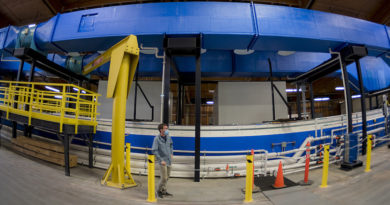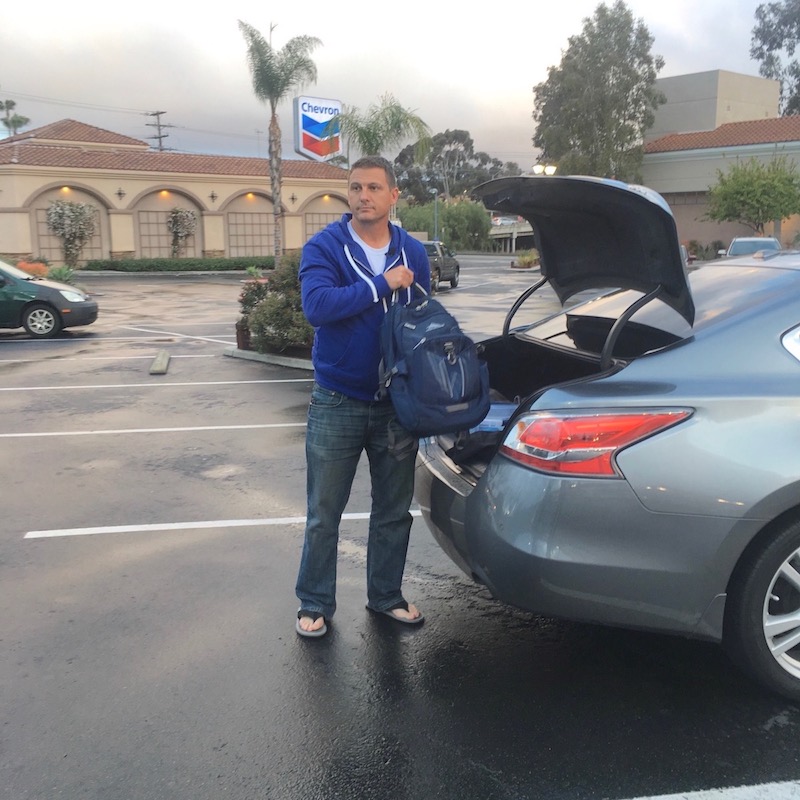Daily Business Report-Sept. 8, 2020
Image via iStock
State Employment Development
Department getting an emergency audit
CalMatters
California’s beleaguered unemployment department has once more come under fire amid reports of dozens of fraudulent claims — even as another 1 million remain backlogged.
Lawmakers approvedan emergency audit of the department last week, a day after the Employment Development Department said it had launched an investigation into potential fraud.
That announcement came on the heels of a floor session in which lawmakers rattled off stories from their constituents: One received 116 letters from the department addressed to 33 people; another received 74 letters addressed to 24 people. A man living in Florida received 13 letters, while another man’s EDD account was hacked and nearly $15,000 paid to an unknown person. (It’s worth pointing out that Republican lawmakers had asked for an audit in June, but consideration of the request was delayed.)
The news comes as weekly unemployment claims continue to rise in California, even as they drop nationally. Californians filed nearly 237,000 new claims in the week ending Aug. 29, accounting for 27 percent of claims filed nationally. More than 8 million Californians have filed initial claims since March.
_______________________________________
Transplant team performs San Diego’s
first HIV liver transplant procedure
UC San Diego Health is the first hospital in San Diego and only health care system in Southern California to transplant a liver from a donor with Human Immunodeficiency Virus (HIV) into an HIV-positive recipient. The successful surgery is part of a national clinical trial that could result in more life-saving options and less time on the transplant wait list for HIV-positive patients.
UC San Diego Health is participating in two national clinical trials supported by the HIV Organ Policy Equity (HOPE) Act, which was passed by Congress in 2013. The HOPE Act permits transplant teams in the United States with an approved research protocol to transplant organs from donors with HIV to qualified recipients with HIV and end-stage organ failure.
Twenty-three sites nationally are involved in the HOPE in Action clinical trial for HIV-positive liver transplants. UC San Diego Health and UC San Francisco are the only sites in California.
_______________________________________
Sorrento Therapeutics acquires SmartPharm to aid
efforts to develop COVID-19 antibody treatments
Sorrento Therapeutics has acquired Massachusetts biotech SmartPharm for $18.6 million to aid its efforts to develop antibody treatments for COVID-19 and other diseases. Sorrento plans to integrate its existing antibody products with SmartPharm’s plasmid DNA technology to make antibody therapy more accessible and affordable
_______________________________________
Common class of drugs linked to
increased risk of Alzheimer’s Disease
A team of scientists, led by researchers at University of California San Diego School of Medicine, report that a class of drugs used for a broad array of conditions, from allergies and colds to hypertension and urinary incontinence, may be associated with an increased risk of cognitive decline, particularly in older adults at greater risk for Alzheimer’s disease (AD).
The findings were published in the Sept. 2, 2020 online issue of Neurology, the medical journal of the American Academy of Neurology.
Funding for this research came, in part, from the National Science Foundation, National Institutes of Health, Alzheimer’s Disease Neuroimaging Initiative and Department of Defense.
_______________________________________
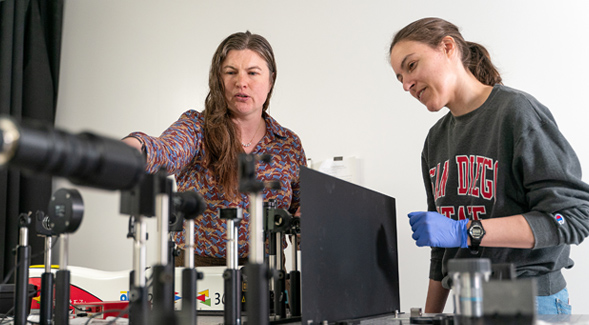
$1.5 million in research stipends for
high-achieving masters and doctoral students
By Padma Nagappan | SDSU
When Petrona Gregorio-Pascual was selected to receive a 2020-21 University Graduate Fellowship (UGF) from San Diego State University, it released her from having to seek teaching opportunities and other sources of funding to continue her research.
“The UGF funding helped me stay focused on what’s important — my research and academic courses,” Gregorio-Pascual said. “As a first-generation graduate student I encountered multiple barriers, among them funding issues, so I’m personally grateful for the financial support I received through SDSU’s graduate fellowship.”
The third-year doctoral candidate in public health is among 30 Ph.D students who received fellowships of $25,000 from the university’s internal funding. Combined with health insurance benefits, the fellowships provide a total of $1 million annually.
Now in its fourth year, the institutional funding for Graduate and Research Affairs supplements external funding doctoral students receive.
_______________________________________
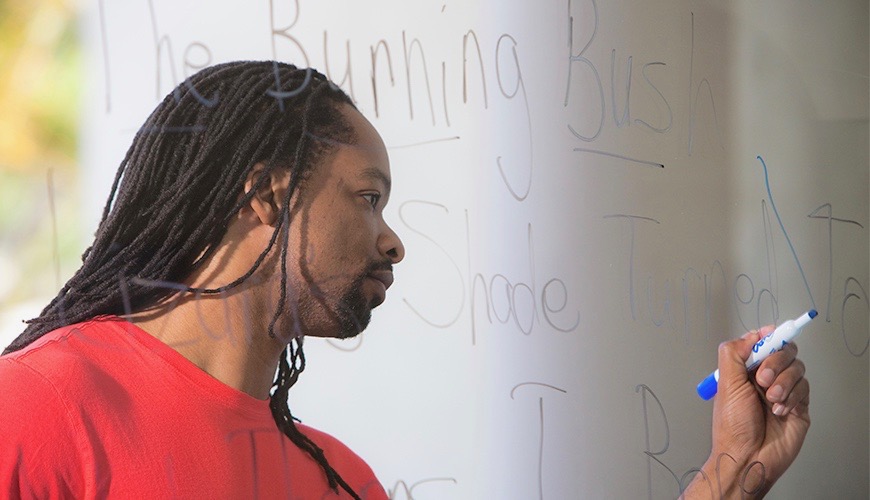
Pulitzer Prize-winning poet kicks off
Cropper Memorial Writer Series
By Julene Snyder | USD
When Jericho Brown — winner of the 2020 Pulitzer Prize in Poetry for his most recent book, “The Tradition” — thinks something is funny, everyone within earshot knows it. His laugh isn’t just infectious, it’s a booming, joyful explosion.
More than 100 people joined the kick-off event to the Fall 2020 Lindsay J. Cropper Memorial Writers Series on Sept. 3 to hear Brown read from his work, talk about his craft and take questions. He is still much beloved on campus; he joined the USD faculty in the fall of 2007 as an assistant professor of English, holding the position until 2012.
“USD is a very special place for me,” he said to a rapt audience who dialed in via Zoom. “It was my first full-time job after I finished school.” Now the director of the Creative Writing Program and a professor at Atlanta’s Emory University, he seemed delighted to see the faces of past colleagues, calling out greetings to some before he began the reading.
_______________________________________
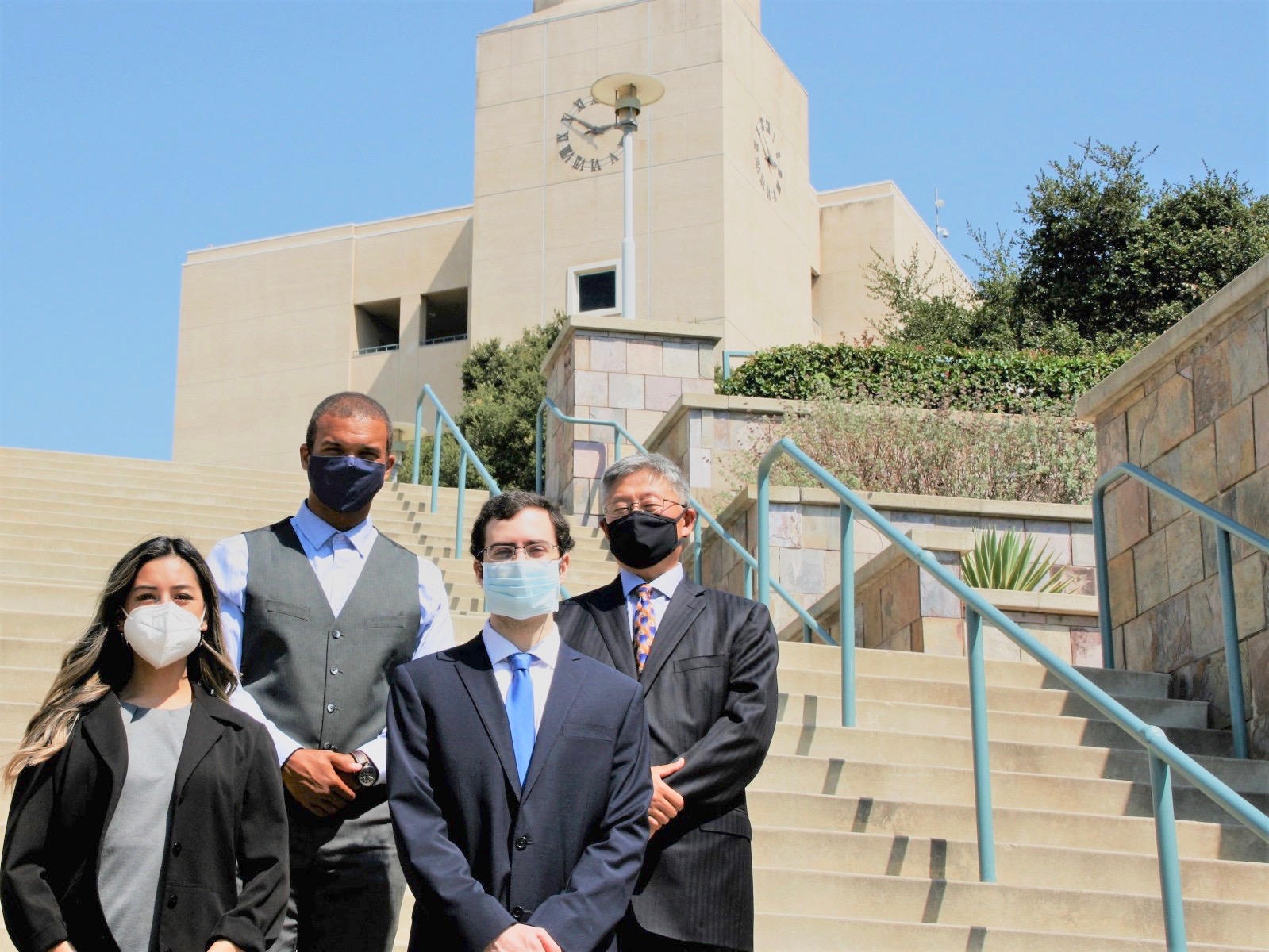
Recent Cal State San Marcos grads
turn project into burgeoning business
By Eric Breier | Cal State San Marcos
Margie Tumolva was fully invested in her Senior Experience project at Cal State San Marcos last fall. So much so that, as the semester was winding down, she asked professor William Byun a simple question: “What’s next?”
Byun explained that usually nothing happens once a semester ends. Most students move on to the next project or graduation. To further develop a Senior Experience project would often require navigating a seemingly insurmountable wall of bureaucracy.
“Sometimes with students, if you tell them to do something and they don’t know they can’t do it, they find a way,” Byun said.
Tumolva and another member of her Senior Experience team, Chace Bower, teamed up with recent CSUSM graduate James Bennett and found a way. The result was the founding of Scylla Microgrid, a company focused on the development and operation of commercially attractive, renewable energy-based microgrids.
“Going in with basically no prior knowledge or experience of microgrids didn’t really matter,” Tumolva said. “Because when you’re passionate and you are diligent, you can discover a lot along the way.”
Bower and Tumolva were part of a five-person Senior Experience team in fall 2019 that was advised by Byun and tasked by the College of Business Administration with creating a campus solar microgrid assessment. The team analyzed a host of aspects, including campus energy demand, electricity billing, procurement procedures, potential vendors and energy regulations.
_______________________________________

General Atomics’ partnership with
City College helps build long-term success
San Diego City College has worked with its corporate partners in establishing 21 apprenticeship programs aimed at meeting employer needs and preparing students for in-demand jobs, including an apprenticeship program at General Atomics initiated in fall 2019.
Since then, two City College students have taken part in the learn-while-you-earn program, working at General Atomics while taking classes. Brandon Thomas, the program manager for the General Atomics Facilities Operations & Services Apprenticeship Program, recently answered a few questions about the partnership with City College.
- Can you tell us a little about the new apprenticeship program?
A. Our General Atomics Facilities Operations & Services team partnered with San Diego City College to establish an apprenticeship program within our organization after identifying four key trades beneficial to our long term success. Our program consists of HVAC-R Specialist, Electrical Specialist, CNC Mechanic, and Plumbing Specialist programs. Each program requires a minimum of four years of education and on-the-job-training working on trade specific projects throughout our facilities. - What are the outcomes General Atomics hopes to achieve through the program?
A. By starting their careers with General Atomics, we will build a sustainable facilities organization by having employees learn and work on our facilities building a legacy of highly skilled and deeply knowledgeable tradespeople. We are encouraged by how our employees have thrived both in the classroom and on-the-job. - Why City College?
A. The San Diego Community College District has a record of proven success in apprenticeship programs in industries similar to ours. Their administrative staff have years of experience working with each stakeholder and their instructors are exceptional in their abilities to connect with our apprentices.



